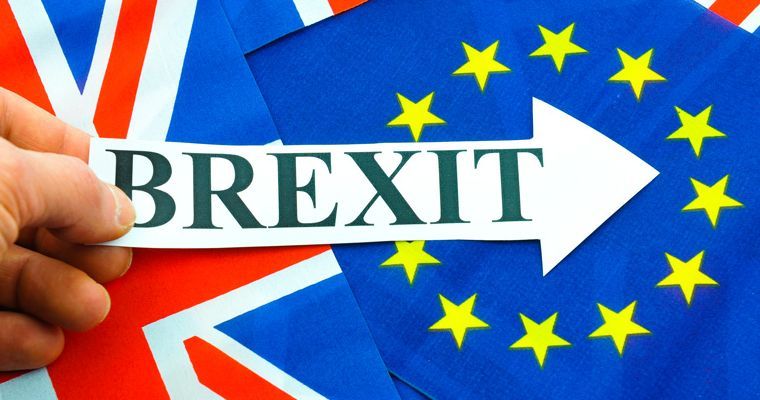How Will Brexit Uncertainty Affect You and Your Business?

Britain voted to exit the European Union (EU) on 23 June 2016. According to The Electoral Commission’s EU referendum results , Total Electorate was 46,500,001and 72.2% turned out to vote. Of the total, 17,410,742 (51.9%) voted to leave the EU and restore British sovereignty. But 16,141,241 people (48.1%) voted to remain in the EU.
This decision triggered shockwaves in the UK and across the EU resulting in business planning challenges for investments and operations; and protracted uncertainties across the board. It is therefore pertinent to know what the possible outcomes are and the risk management tools you can adopt to mitigate the risks and optimise opportunistic outcomes.
HetoGrow Capital will be present at the
PAC Business Seminar which aims to steer your thoughts in the right direction by providing critical information to complement the UK Government’s efforts to expedite action on the Brexit process. This will help you navigate the Brexit environment and be ready for post Brexit Britain.

Assessing the Brexit Process: Known-Knowns, Known-Unknowns and Unknown-Unknowns
What do you know about Brexit? What should you know that you don’t? And what are the potential unimaginable knock-on effects of Brexit with no possible algorithmic predictions? If Brexit negotiations don’t produce any agreement, what happens? Will all existing EU agreements cease immediately and World Trade Organisation (WTO) rules kick in? It is therefore crucial to do detailed impact assessments including relevance of the Irish border on trades.
Consequently, to be able to manage the changes imposed by Brexit and ensure the best possible outcome for you or your business, a good understanding of risks that will impact you or your company/business, as well as opportunities that may present, will be critical in the post Brexit business environment.
The Known-Knowns - Brexit Process and the EU Withdrawal Time Lines
1.Article 50 of the EU Lisbon 2009 treaty was triggered by the UK on 29th March 2017 to formally notify the EU of the decision to withdraw. This kick-started the 2 years formal process of leaving the EU.
2.Formal Brexit negotiations started 19 June 2017. Expected to be completed by October 2018.
3.The UK is scheduled to depart at 11pm UK time on Friday 29 March, 2019. This marks the beginning of the transition period to prepare for the implementation of post-Brexit rules.
4.Transition period to last until 31 December 2020. Given ongoing negotiations, this could change.
5.Ceteris paribus, Brexit and UK’s independence from the EU will formally start 01 January 2021.
The Known-Unknowns
The European Union is based on the idea of a single market that is characterized by freedom of movement across borders for goods, services, capital, and people. This poses several challenges without deterministic outcomes.
1.Given ongoing negotiations, no one knows exactly what these four cornerstones will look like post Brexit.
2.We know that the scope and complexity of the negotiations will cover the UK’s interest in continuing with the single market, security commitments and payment of the final settlement divorce bill.
3.According to the BBC , Downing Street sources say the divorce bill is estimated to be £35bn - £39bn payable to the EU over four years. However, there’s a possibility this could increase.
4.There’ll also be changes to UK Law including, immigration, employment, human rights and consumer law, import and export rules and customs tariffs, investment flow and capital flight management, new legislation and regulation, etc. Agreement could be reached on all of these.
5.There’s also a chance of no deal. And if that’s the case, trade arrangements could default to WTO rules. But what will be the exact implications if that’s the case? This is not a clean way out for the UK because WTO rules are limited to trade and fraught with implementation difficulties.
6.Other sticking points like the single market, operational and legal framework remain unresolved. This will increase the prevailing uncertainty around Brexit.
The Unknown-Unknowns
According to the EU Transitional Arrangements in the Withdrawal Agreement ,preparation and conduct of negotiation with the UK is ongoing to set out the framework for future relationship. In the meantime, EU law will remain applicable in the UK but with some exceptions. The UK government is preparing to leave the EU in the best possible way for the UK’s national interest and wants to secure a smooth and orderly exit. The UK Prime Minister Theresa May's Brexit speech on02/03/2018 was conciliatory but it didn’t contain any new policy details hence was greeted with mixed reactions both in the UK and in the EU. The lack of details has exacerbated the prevailing uncertainty and stretched the debate. There have been allegations of the EU trying to bully the UK to discourage other countries from exiting the EU. But what if another country decides to leave the EU tomorrow? No one can really say what the final outcome will be. This has exacerbated prevailing uncertainty with huge economic impacts. But there are some indications of what some of these are. According to UK Government ’s formal negotiating position, pending issues include
1.Continuityin the availability of goods for the EU and the UK
2.Ongoing Union judicial and administrative proceeding
3.Ongoing confidentiality obligations and access to EU documents
4.Border with the EU in Ireland
However, with political uncertainties in the UK given apparent disunity within the ruling party, there’s so much uncertainty about final negotiating positions. The result of the 2018 Italian general election held on March 4,2018, also seen as the Italian Referendum on national and EU policies, resulted in significant gains for nationalist and radical far right parties; forcing a hung parliament. The strength of the parties in the new government will affect what deals can be struck and may well instigate Italexit. This will have a direct impact on French and German EU policies as well as the final outcome of the Brexit process. As we continue to watch events elsewhere in Europe, it is clear that there are too many unknowns.
Contingency Planning for Businesses and Individuals
Whether you are a company or private individual, it is crucial to think about how Brexit will affect you. Some of the key issues to consider include
1.Brexit implications for the business sector and direct impact on your business. Impact on trade particularly for import and export businesses. What happens if no deal is agreed with the EU by the deadline date?
2.Emerging legal framework and access to the single market
3.Impact on the banking sector – jobs, re-training, relocation, inbound investments and funding for local businesses.
4.Are you prepared for the fallout? Have you prepared to mitigate the impact of the risks on your business and take advantage of developing opportunities?
5.How will Brexit impact recruitment and retaining new talent from the EU? What opportunities exist for Afro-UK nationals to re-train and take advantage of new career opportunities?
6.Price of commodities, consumables, services, holiday costs, etc.
7.Value of Pound Stirling and its impact on you.
This list isn’t finite but I think it is enough to get you thinking about what Brexit means for you. Conclusively, the ramifications of Brexit are far too serious to be left to the imagination because we have never walked this way before. It is advisable for businesses and individuals to pay attention to and participate in the debates and negotiations to sieve out information necessary for contingency planning. A good way to do that is to join business networks, enlist in business directories and get free newsletters. Also attend seminars and conferences especially the free ones. They are enough to help you gain a better understanding of the Brexit Process and assess how it will affect your job or business. If you want more detailed information or assistance then attend the paid events.



